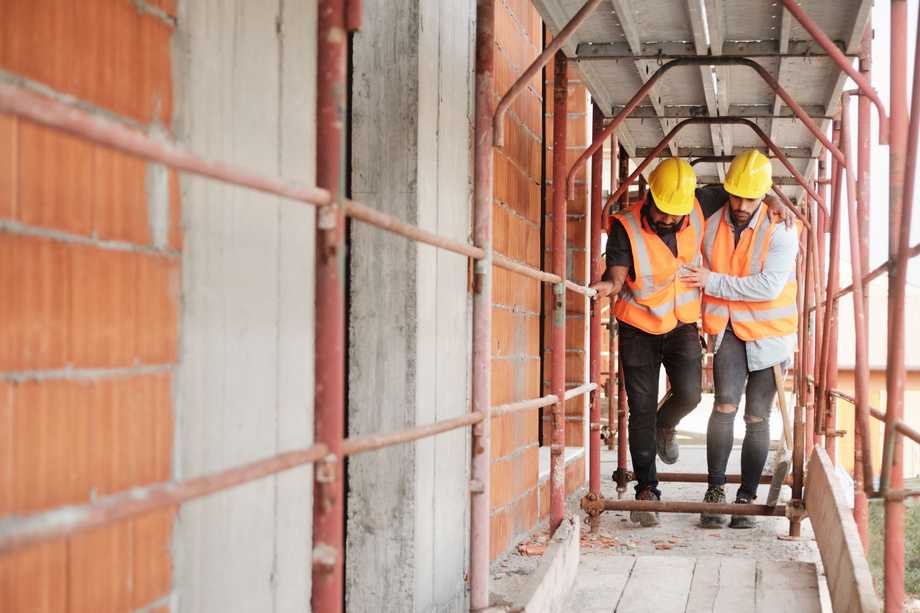
I’ve had an accident whilst being a temporary worker. What should I do?
Even with risk management and prevention strategies in place, accidents at work do occasionally happen. The UK has robust processes in place to protect both workers and employees against accidents, and to compensate them if an accident does happen. Agency workers have equal rights to permanent employees when it comes to accidents at work. Hirers should therefore provide the same risk assessments, training and PPE as they do for their employees.
What is the procedure for accidents at work?
Under the Health and Safety at Work Act 1974, all employers have a duty of care to their employees and workers. This means they must ensure that workers have a safe and secure working environment, that equipment is well-maintained and in good condition, and that the workplace complies with all up-to-date health and safety standards. They also need to ensure that employees and workers are aware of any risks involved in their role, and that they are provided with the necessary training and PPE.
In the case of an agency worker, the duty of care is divided between the agency (which is the employer), and the hiring organisation. In practice, the hiring company usually has the lion’s share of responsibility when it comes to preventing and reporting accidents at work. In some cases though, certain aspects of the role such as safety training or PPE is managed by the agency.
If you have an accident at work, you’ll need to report it as soon as possible. In the first instance, contact your manager or whoever is responsible for your work when the accident happens. If there is an accident book (which is compulsory for companies with more than 10 employees), the accident should be recorded there. You’ll also need to let your agency consultant know.
For further details about which accidents need to be reported, see the Health and Safety Executive’s information about ‘RIDDOR’ (the Reporting of Injuries, Diseases and Dangerous Occurrences Regulations 2013): https://www.hse.gov.uk/pubns/indg453.pdf
It is a good idea to make your own notes about the accident, including the time and date, where it happened, how it happened and what injuries were sustained. Send this report to your manager by e-mail, with a delivery or read receipt if possible.
Try to make contact with witnesses of your accident, and take photos of the scene and your injuries if you can (or ask others to do so). These may be useful for any subsequent claim. You should keep as much evidence as possible about your accident.
Finally, make sure you see your GP or seek medical attention as soon as possible. Keep any medical notes or reports.
Pay after an accident
If you need to take time off work while recovering from an accident at work, you may be entitled to the hiring company or agency sick pay – check your terms or with your agency. If not you’ll be entitled to Statutory Sick Pay (SSP) for up to 28 weeks. SSP is £96.35 per week, and should be paid by your agency.
Reducing the risk of an accident
As mentioned above, both the agency and the hiring company have a duty of care to their agency workers. Additional safety measures should be in place for high-risk sectors such as logistics or construction, especially if temporary workers are required to operate equipment. Workers should be provided with any Personal Protective Equipment (PPE) required in order to be safe, such as gloves or safety shoes in a logistics warehouse or on a building site. Either the hirer or the agency will be responsible for providing PPE, depending on the role.
Hiring companies should prevent accidents by providing health and safety training for their staff. Agency workers should receive the same training as permanent employees doing the same job.
The ‘statement of employment particulars’ issued by the agency for your assignment should list any risks inherent in your role, and what the hirer has done to mitigate these risks.
Finally..
Although any employee or worker could have an accident at work, some are at higher risk due to their job or employment sector. Measures must be taken by the hirer to mitigate risks and prevent accidents. Both permanent employees and temporary workers should be kitted out with any PPE that they require for their role, such as masks, gowns, goggles or safety shoes. Any required training should be provided free-of-charge.
If, despite precautions taken, there is an accident, check with your manager to make sure that it has been fully reported. If you have to stop work, check your statement of terms to see whether you’re entitled to sick pay or benefits. You may also be able to make a personal injury claim.
To find a temporary work assignment, click below 👇